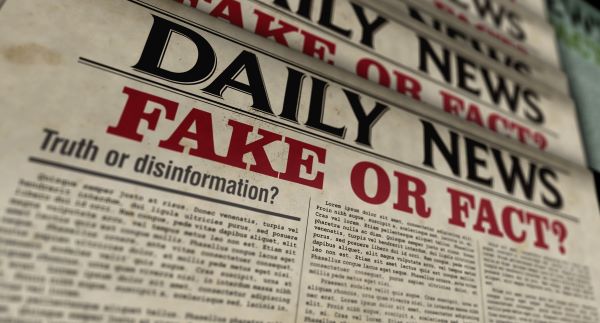Growing Risk of Disinformation
By: Michelle Amazeen

The new year began with the World Economic Forum releasing its 2024 Global Risks Report which describes hazards occurring in the global landscape from year to year. Topping the 2024 report is the threat of mis- and disinformation intensifying societal divides around the world over the next two years.
Indeed, in the year ahead, the American public is facing numerous issues that require informed decisions. We are navigating a presidential election, military action in Ukraine and Gaza, continued resistance against taking meaningful action on climate change, and lingering waves of Covid-19, just to name a few. Each of these on its own is challenging enough. However, dealing with all of them simultaneously and combined with the increased use of generative artificial intelligence, the media ecosystem is poised for a tsunami of disinformation: deliberately false content intended to mislead.
Do we trust US media to get us this information accurately? According to a nationally representative poll COM conducted in 2022, roughly 60% of Americans said they trusted media to provide accurate information on the issues of climate change, elections, and vaccines. Even fewer (55%) trusted media to make a clear distinction between news and advertising. But there were stark differences in responses based upon political identity: Democrats were much more trusting of media on these topics (80%) than were Republicans (just over a third). Other national polls, such as from Gallup, indicate that Americans’ trust in media more generally is at a record low point with similar partisan divides.
The concern with misinformation is not just among elites, but is also held by everyday Americans. A recent national survey by MediaWise revealed that 4 out of 5 participants (81%) believed false or misleading online images were a problem for society. At the same time, roughly 3 in 4 respondents were not confident in their ability to identify misinformation. According to CRC fellow Dr. Joan Donovan, Assistant Professor of Emerging Media Studies and Journalism and author of Meme Wars, “The entire purpose of media manipulation campaigns is to trick you, so it’s not easy to quickly discern fakes from facts in today’s media. Viral memes are often missing the context needed to understand the motives of the author and really viral memes will shed any reference to the original source as it is distributed. This is why we need to be able to access more reputable news sources on social media.”
Thus, now, more than ever, is when media literacy is essential. Media literacy is the ability to critically analyze stories presented in the media and to determine their accuracy or credibility. My research has shown that the more people know about the media, the better able they are to resist online disinformation efforts. According to our latest Media & Technology poll among a nationally representative sample of US adults fielded this month, 72% of respondents agree that media literacy skills are important in helping people identify misinformation, yet only 42% report knowing how to access quality media literacy training online. Yet, there is demand for these skills as nearly 7 in 10 reported interest in learning how to better distinguish between true and false information online, especially when it comes to identifying misinformation generated with AI.
Given the challenging times before us, I am pleased to welcome a new voice among our CRC fellows who study mediated communication dysfunction. Dr. Betsi Grabe joins COM this month as the Dalton Family Professor and will be directing the Emerging Media Studies PhD program. While the first part of Dr. Grabe’s career was spent conducting research to understand the media’s role in facilitating informed citizenship, more recently her focus has shifted to researching disinformed citizenship. “My sense is that the integrity of the global information ecosystem is critical to the longevity of the democratic way of life,” Grabe tells me. “Actionable research that shapes public debate, informs policy, and empowers citizens is urgently necessary and arguably, part of our social responsibility as academics.”
We are fortunate to have so many esteemed researchers who are committed to understanding why and how media affect us and society at this time of extreme information disorder. I look forward to working with Dr. Grabe and the continued efforts among all CRC fellows in conducting research that matters.